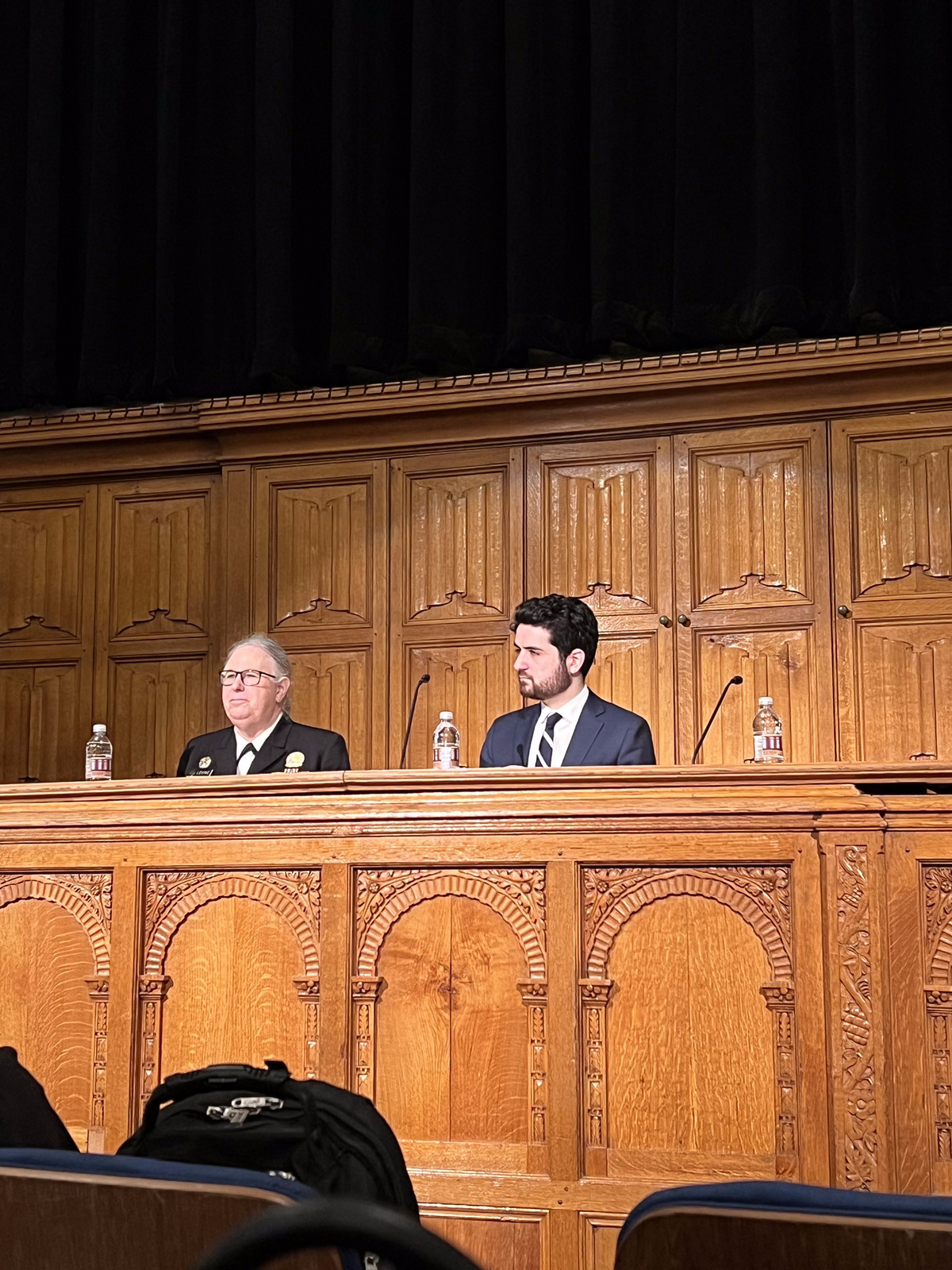Assistant Secretary for Health Rachel L. Levine discusses LGBTQI+ health at Yale Law School
The Yale Solomon Center for Health Law & Policy welcomed Levine for a keynote on the importance of gender-affirming care for transgender and non-binary youth.

William Zhang, Contributing Photographer
Students and faculty filled the Levinson auditorium on Feb. 6 to attend a conversation with Admiral Rachel L. Levine on LGBTQI+ health and gender-affirming care.
Levine is the assistant secretary for health for the U.S. Department of Health and Human Services and the first transgender woman to hold the position. She has served as a physician in pediatrics and adolescent medicine, as Pennsylvania’s Physician General and as Pennsylvania’s Secretary of Health.
During the event, Levine discussed the legal and societal barriers to gender-affirming care, including the role physicians play in advocacy and addressing misinformation. Among those in attendance were Yale students from the Law School, School of Medicine and School of Public Health, alongside other Yale faculty and community members.
“I firmly believe that none of us make progress unless we all make progress,” Levine said. “Reducing disparities in LGBTQI+ communities must take intentional account of systemic racism and implicit bias in the intersectionality of health disparities.”
Levine described gender-affirming care — which includes puberty blockers, gender-affirming hormones and surgical procedures, among other interventions — as “safe,” “effective” and “medically necessary.”
Levine described how transgender and nonbinary youth are disproportionately burdened by mental health challenges. She noted that gender-affirming interventions are associated with lower odds of depressive symptoms, self-harm and suicidal thoughts. Given this, Levine said, gender-affirming care has been life-saving for thousands of young LGBTQI+ people across the country.
“The political landscape in the US is not kind to trans individuals and families; in some states it’s not enough to have allyship in physicians,” wrote Ellery Neiderer SPH ’24 , an aspiring physician and policymaker. “It’s extremely heartening to have someone like Admiral Levine … her presence [is a] powerful and visible beacon of resiliency toward LGBTQ health equity.”
David Zhu SPH ’24 said that one of the most impactful moments of the event was when the mother of a transgender child shared the story of moving from Texas to Connecticut because of the stigma that her child had been experiencing in school.
“Hearing her stories brought me to tears because it captured the reality of the social, legal and health disparities that transgender youth are facing in America,” said Zhu.
As the mother teared up, the room applauded in support. Zhu lauded the “sense of social solidarity and community support” in the room.
This is the kind of conversation that Yale Law professor and professor of internal medicine Abbe Gluck — founding faculty director of the Yale Solomon Center for Health Law & Policy— sought to foster.
“I was also struck by [Levine’s] statement that the health needs of LGBTQI+ individuals have yet to be truly integrated into general medical training — that is, as something all doctors, not just specialists should have basic familiarity with,” Gluck said. “That seems like an area in which academic institutions can help lead the way.”
According to Gluck, it was an “enormous privilege” to have Levine share her work at the “cutting edge of healthcare and health law.”
The Solomon Center is located at 127 Wall St.
Correction 2/22: This story was updated to reflect Professor Gluck’s language in a statement to the News.







